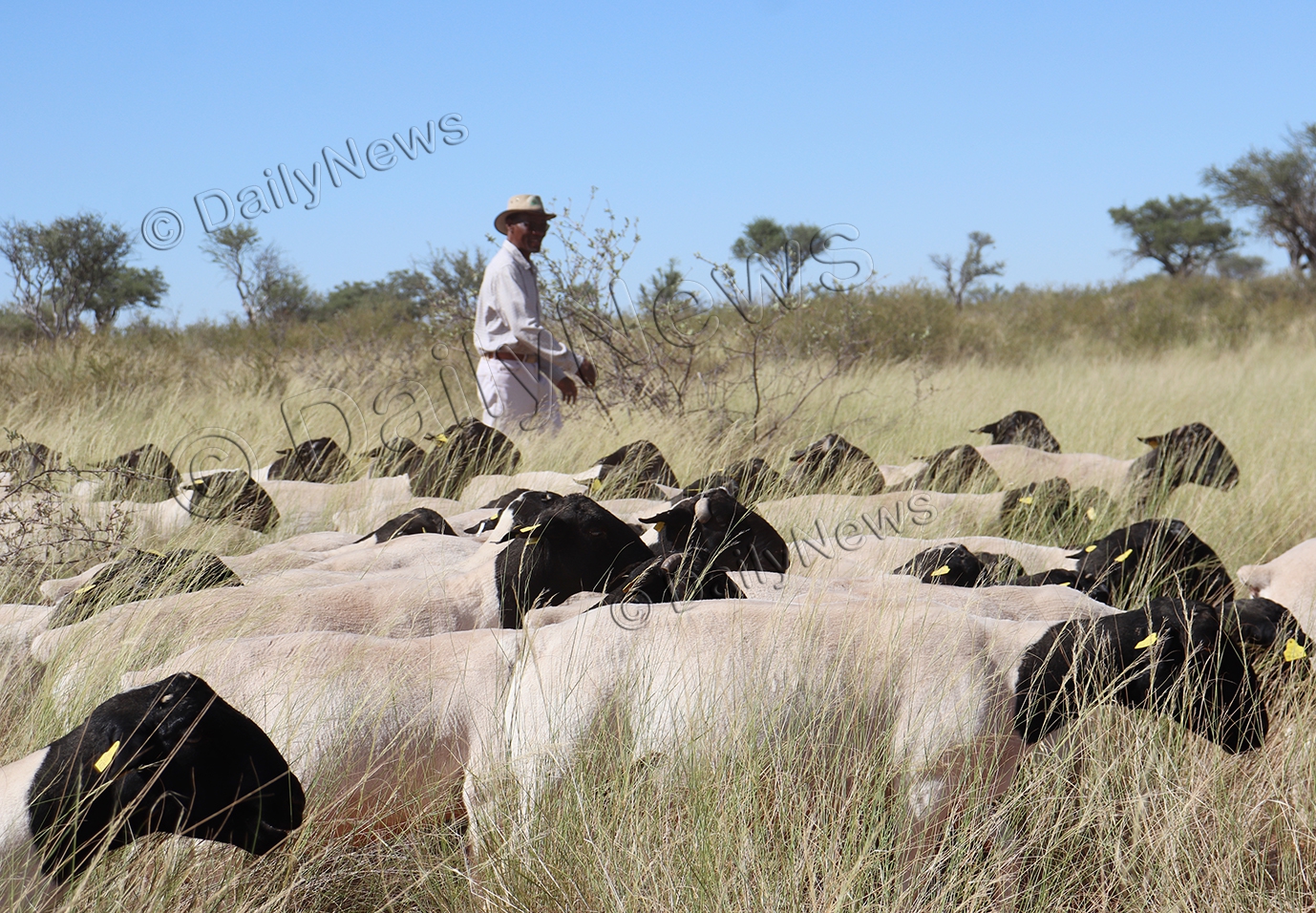Lobu farm Hive of activity
16 Apr 2024
Deep in the heart of Kalahari Desert, about 110 kilometres South West of Tsabong lies Lobu Smallstock Farm nestled among the rolling dunes.
The 10 800 hectares farm is endowed with a spectrum of natural imagery dotted with sheep and goats where nature and human labour seamlessly come together.
Established in 1978 led by the first farm manager Raymond Frost, Lobu is a beehive of activity located at a stone’s throw away from Khuis.
Its vast and untouched expanse of land evokes a sense of harmony connecting humanity to the roots of food sources and a reminder of an enduring bond between humans and the earth.
“This is where life is,” said Kgosi Piet Manyoro of Khawa who is one of the pioneers of the farm.
He saw it from its nascent days to what it is today. Kgosi Manyoro was among those who built the farm fence and later became one of the first to herd the first flock of Karakul sheep bought and kept at the farm.
He said the farm started off by selling Karakul pelt to Namibia when the market was still thriving.
Kgosi Manyoro who later left the farm in 1989 to assume the role of chieftaincy appreciated progress made such as infrastructure development and digitization. Also, Mr Orakanetse Tonobele who joined the farm in 1997 said the administration block and staff houses were later built in 2000 and since then developments have been ongoing albeit slowly.
Notable developments were realised from the time when President Mokgweetsi Masisi visited the farm as the then vice president in 2018 and Rural Development Council chairperson, he said.
Mr Tonobele has so far amassed ample knowledge at the farm having learnt the best farming practices.
“Lobu has taught me a lot including professional care for small stock,” he said.
Ministry of Agriculture deputy permanent secretary, Livestock Farming, Dr Boitumelo Mogome-Maseko said plans were underway to establish Lobu as a knowledge hub.
She highlighted that Lobu was the most developed of all government small stock farms which included Mantshwabisi, Setata, and Impala, adding they were looking for partnerships to develop them to the level of Lobu or even better.
Dr Maseko said the farm was established against the backdrop of a partnership between government and European Union to support the BORAVAST Pelt and wool production farms and capacity building.
“However in the late 1980s, we saw a campaign against slaughtering of day old lambs in the developed world, where our market was. There was introduction of synthetic leather products mimicking that soft leather made from pelt, thereby affecting production,” she said.
She said in 2008, the farm collapsed as there were no sales of leather products.
“We were producing and selling to Namibia where they sold it as SWAKARA (South West Africa Karakul) as a way of doing away the pressure that was coming from the de-campaigning of pelt production.
In 2008 during global recession we saw a total collapse of Lobu and we started diversifying by introducing different breeds such as Savannah, and the Saanen Goat, Meat Masters, and Damara.
They also started a training centre for small stock production courses.
She asserted that in 2011 the mandate of the farm was changed to support the LIMID programme and other poverty eradication small stock packages.
She said a decision was made in 2018 to revamp Lobu where all the livestock was sold and the farm restocked with Boer Goats and Dorpers.
She highlighted that in 2021 as part of the reset agenda, the farm was diversified with additional breeds. She said the decision was to transform Lobu into a smart farm with the objective to remodel it into a sustainable farm to create jobs and prosperity for the communities.
The plan is to have half of the farm continue as a small stock farm and the other half subdivided into an Artificial Insemination centre for the region and have three private small stock farms. She said the farm was successful boasting of 2 506 sheep, 1 284 goats and 81 Brahman cattle of superior genetics.
Dr Mogome-Maseko said in an endeavour to upgrade Lobu farm they were open for partnerships locally and internationally to implement the smart farm model, develop infrastructure, acquire farm machinery and technologies, as well as smart water harvesting methods. ends
Source : BOPA
Author : Calviniah Kgautlhe
Location : LOBU
Event : Interview
Date : 16 Apr 2024






